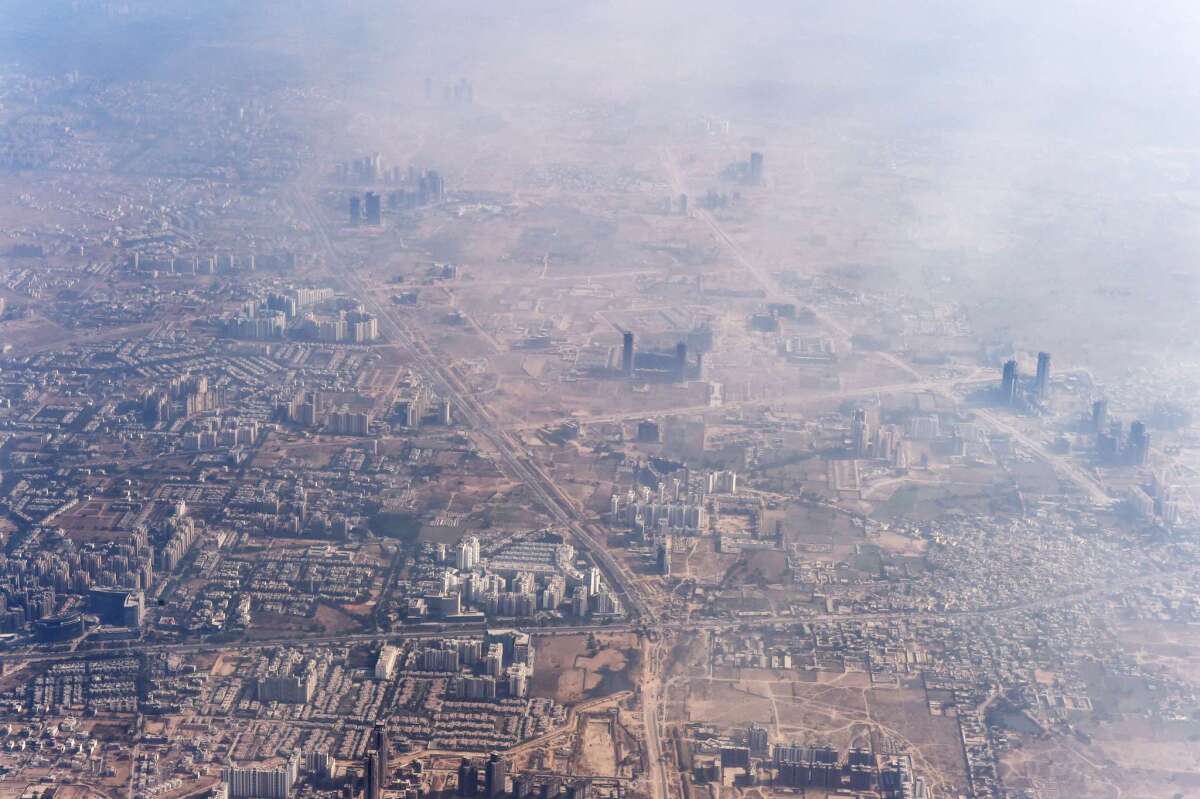India cracks down on Greenpeace, other environmental groups

The Indian government has launched a crackdown on Greenpeace and other U.S.-linked environmental groups after intelligence officials accused climate activists of harming the country’s economic security.
Authorities over the weekend barred a Greenpeace staff member from traveling to London to speak to British lawmakers about alleged legal and human rights violations in India by Essar, a British-registered energy company.
The government last year blocked Greenpeace from accessing foreign funds, and Indian media reported this month that authorities had imposed similar restrictions on four U.S.-based environmental advocacy organizations. A representative of one of the groups has had his personal bank account frozen and been ordered to explain every deposit sent from the group’s U.S. office since 2010, according to an individual familiar with the matter.
Indian authorities have not officially explained the actions, but activists say the five groups are being targeted for campaigning against India’s coal-based energy industry, the source of 80% of the country’s domestic power production and a linchpin of the government’s economic development plans.
Greenpeace and the other organizations – Sierra Club, 350.org, Avaaz and the Bank Information Center – have organized protests against the coal projects, arguing not only that the carbon emissions pose an environmental threat but also that the process of awarding coal blocks has been plagued by corruption, environmental degradation and land-grabbing.
“The groups who’ve been working on coal and climate change are the groups that are being singled out,” said Priya Pillai, the Greenpeace staff member who was blocked from traveling to London. “But this is a democratic country and I have a right to speak my mind.”
A spokesman for India’s home affairs ministry, Kuldeep Dhatwalia, said that the decision on Pillai was made for security reasons that were “not necessary” to explain publicly. He declined to comment on the action taken against the other groups.
With one-quarter of its 1.2 billion people lacking electricity, India rejects arguments by green activists that it must move away from coal energy, saying the alternative would be to keep its citizens in poverty. Yet its actions against U.S.-linked advocacy groups come at an awkward time, with President Obama due to travel to New Delhi this month in a visit aimed at building ties with India’s new conservative government.
Prime Minister Narendra Modi has pledged to make India more business-friendly and begun to chip away at the regulations that domestic and foreign industries claim have stifled investment and economic growth. Last week, at a major business convention in Modi’s home state of Gujarat, Secretary of State John F. Kerry said U.S. companies were eager to do business with the new government.
“We want to expand our commercial ties and change the way our businesses talk with one another so we can take this relationship … to the new heights that we envision,” Kerry said.
Kerry did not mention the action against the U.S.-based advocacy groups.
Indian authorities have frequently lashed out at critics of their development strategy, accusing activists of undermining India’s development at the behest of unspecified foreign interests.
“The so-called free speech they are talking about is not free speech, it’s not free opinion; it’s paid opinion,” G.V.L. Narasimha Rao, the national spokesman for Modi’s ruling Bharatiya Janata Party, said this week on NDTV, a news channel.
“They are acting as foreign propagandists and foreign agents.”
Soon after Modi took office in May, India’s intelligence agency, in a report leaked to the news media, said that advocacy campaigns by Western-funded nongovernmental organizations were “stalling development projects” and had reduced India’s annual economic growth by 2% to 3%. Greenpeace, it said, “is assessed to be posing a potential threat to national economic security.”
Weeks later, the Ministry of Home Affairs blocked Greenpeace from accessing funds wired to its Indian bank account from overseas. Greenpeace, which says that 60% of its funds in India come from domestic contributors, filed suit asking for an explanation of the decision; a hearing in the case is scheduled for this month.
Another Greenpeace staffer was barred from entering India in September despite holding a valid visa.
On Sunday, Pillai was stopped at the airport in New Delhi as she attempted to travel to London on a business visa. She said Greenpeace staff in London had arranged a meeting with lawmakers to discuss allegations that Essar’s proposed coal mine in the central state of Madhya Pradesh had violated the rights of indigenous communities.
Immigration officials did not explain why she was stopped, and letters to multiple government agencies requesting information on the matter have not been answered, Greenpeace officials said.
“Is it now an offense in India to speak out for the most marginalized people in the country?” Pillai said.
The environmental group has often courted controversy with its confrontational tactics. Last January, Greenpeace activists posing as a cleaning crew scaled the glass facade of Essar’s 21-story offices in Mumbai and unfurled to a banner saying, “We Kill Forests,” a reference to the Mahan forest, which would be destroyed to develop the coal mine.
Pillai was among several activists arrested in connection with the protest. She was released on bail, the conditions of which do not bar her from traveling outside India, accordig to a copy of the court order Greenpeace released Tuesday.
The other groups each have a much smaller presence in India. Avaaz and 350.org mainly organize online, and Bank Information Center has a handful of paid staff members tracking development projects funded by the World Bank and other international lenders.
A Sierra Club spokeswoman said the San Francisco-based organization has no staff in India and that authorities had not contacted them to explain the matter.
Special correspondent Parth M.N. contributed to this report.
More to Read
Start your day right
Sign up for Essential California for news, features and recommendations from the L.A. Times and beyond in your inbox six days a week.
You may occasionally receive promotional content from the Los Angeles Times.







